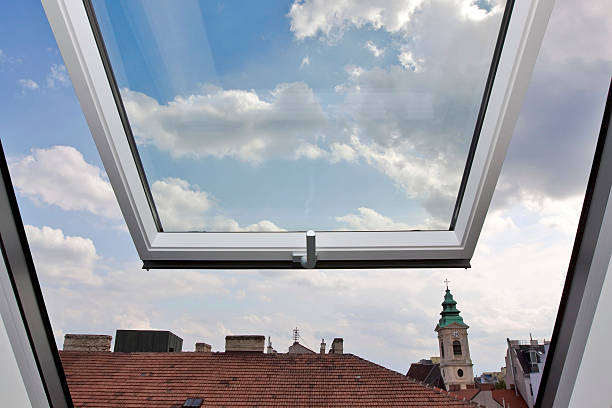Commercial roofing is a critical aspect of any business property, ensuring protection against the elements and maintaining a safe environment for employees and customers. One significant component of commercial roofing is roof replacement, which is essential for preserving the integrity of the building and avoiding costly damage. In this comprehensive guide, we’ll delve into the fundamentals of commercial roofing, focusing particularly on the importance and process of roof replacement. Whether you’re a business owner seeking to maintain your property or a contractor looking to expand your knowledge, understanding commercial roofing and roof replacement is crucial for ensuring the longevity and durability of your building.
What is Commercial Roofing?
Commercial roofing refers to the installation, repair, and maintenance of roofs on commercial buildings such as offices, warehouses, and retail spaces. Unlike residential roofing, which typically covers individual homes, commercial roofing deals with larger, often flat or low-sloped roofs designed to accommodate the expansive nature of commercial structures.
Importance of Commercial Roofing
Commercial roofing plays a vital role in protecting the interior of a building from weather elements such as rain, snow, and UV radiation. A well-maintained roof helps to regulate indoor temperature, prevent water leaks, and ensure the structural integrity of the entire building. Regular inspections and maintenance are essential to identify any issues early on and prevent costly repairs or replacements down the line.
Understanding Roof Replacement
Roof replacement involves removing the existing roofing materials and installing new ones to ensure the continued functionality and safety of the building. While regular maintenance can prolong the lifespan of a commercial roof, there comes a point when replacement becomes necessary due to wear and tear, storm damage, or structural issues.
Signs that Roof Replacement is Needed
Several indicators suggest that a commercial roof may need replacement, including:
- Visible Damage: Cracks, blisters, or missing shingles indicate wear and tear that compromises the roof’s integrity.
- Water Leakage: Persistent leaks or water stains on the ceiling signal underlying roof damage that requires immediate attention.
- Age of Roof: As roofs age, they become more susceptible to damage and deterioration, necessitating replacement after a certain number of years.
- Increased Energy Costs: A poorly insulated or damaged roof can lead to higher energy bills as heating and cooling systems work harder to maintain indoor temperatures.
The Roof Replacement Process
a. Inspection and Assessment: A professional roofing contractor will conduct a thorough inspection of the existing roof to assess its condition and identify any underlying issues that may require attention.
b. Material Selection: Based on the assessment, the contractor will recommend suitable roofing materials that meet the building’s requirements and budget.
c. Removal of Old Roofing: The existing roofing materials are carefully removed to expose the underlying structure and ensure a clean surface for the new roof installation.
d. Installation of New Roofing: The new roofing materials are installed according to manufacturer guidelines and industry best practices to ensure optimal performance and longevity.
e. Quality Assurance: Once the replacement is complete, the contractor conducts a final inspection to verify that the new roof meets quality standards and provides the necessary protection for the building.
Benefits of Roof Replacement
Investing in roof replacement offers several benefits for commercial property owners, including:
- Enhanced Protection: A new roof provides superior protection against weather elements, reducing the risk of water damage, mold growth, and structural deterioration.
- Improved Energy Efficiency: Modern roofing materials offer better insulation, helping to reduce energy costs by maintaining comfortable indoor temperatures year-round.
- Increased Property Value: A well-maintained roof enhances the overall value and curb appeal of the property, making it more attractive to potential buyers or tenants.
- Peace of Mind: Knowing that your building is equipped with a reliable, durable roof provides peace of mind and eliminates the stress of dealing with unexpected leaks or repairs.
Conclusion
Commercial roofing and roof replacement are essential aspects of building maintenance and management. By understanding the importance of a well-maintained roof and recognizing the signs that replacement may be necessary, property owners can ensure the longevity and durability of their buildings. Partnering with a reputable roofing contractor and investing in regular inspections and maintenance can help mitigate risks and protect the value of your commercial property for years to come.
For more…… Click here.

